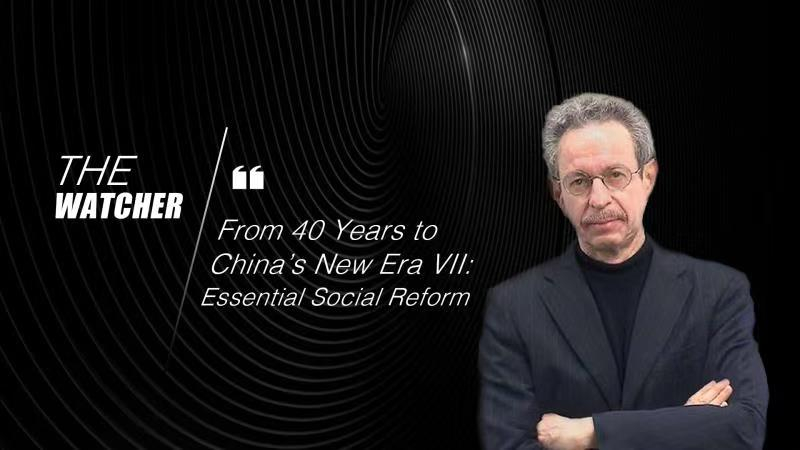
Opinions
23:25, 30-Nov-2018
From 40 Years to China's New Era VII: Essential Social Reform
Updated
22:42, 03-Dec-2018
By Robert Lawrence Kuhn
03:40

I'm Robert Lawrence Kuhn and here's what I'm watching: In this 40th year of China's reform and opening up, Social Reform – people's demand for better healthcare, education, social security; a cleaner environment; and reduced disparities between rich and poor.
What lessons were learned? What challenges lie ahead?
The best way to view social reform in China, both in the past and into the future, is through the lens of what is called “the principal contradiction,” a political positioning concept that defines the most significant or pressing issue that needs to be addressed.
For decades, China's principal contradiction was “the ever-growing material and cultural needs of the people versus backward social production.”
Now, even as China is about to achieve its first goal of becoming a "moderately prosperous society," there is growing dissatisfaction with social conditions. Thus, in Chinese President Xi Jinping's "new era," the Principal Contradiction has changed: It is now “between unbalanced and inadequate development and the people's ever-growing needs for a better life.”
Why did Xi call the change a "historic shift that affects the whole landscape?" China's new principal contradiction, while typically terse and elliptical, frames a rich tapestry of risks and opportunities, strategy and tactics, policy drivers and targeted reforms.
To dismiss the new principal contradiction as arcane Party-speak misses an opportunity to discern what is really happening here. After 40 years of economic boom, a large majority of China's 1.4 billion people live adequate lives.
But people now want better lives, and requirements for better lives are increasingly broad. As President Xi said in his report to the 19th CPC National Congress in October 2017: “Not only have the people's material and cultural needs grown; their demand for democracy, the rule of law, fairness and justice, security, and a better environment are increasing.”
The message is that while economic growth remains necessary, it is no longer sufficient. This "new era contradiction," replacing quantitative GDP growth with qualitative quality-of-life improvement, is what will now drive policy.
For example, it is not that most people cannot afford medical care; it's that they must wait for hours at overcrowded hospitals and, even then, get only five minutes with a doctor.
It's not that many people do not have good homes; it's that they do not have clean air. It's not that China is not developed; it's that the distributive justice of national resources and social wealth is not equitable.
China's success will be measured more by the satisfaction of the people than by the growth of the economy. Will “satisfaction” be harder to judge? Chinese people are not shy. I'm keeping watch. I'm Robert Lawrence Kuhn.
(If you want to contribute and have specific expertise, please contact us at opinions@cgtn.com.)

SITEMAP
Copyright © 2018 CGTN. Beijing ICP prepared NO.16065310-3
Copyright © 2018 CGTN. Beijing ICP prepared NO.16065310-3